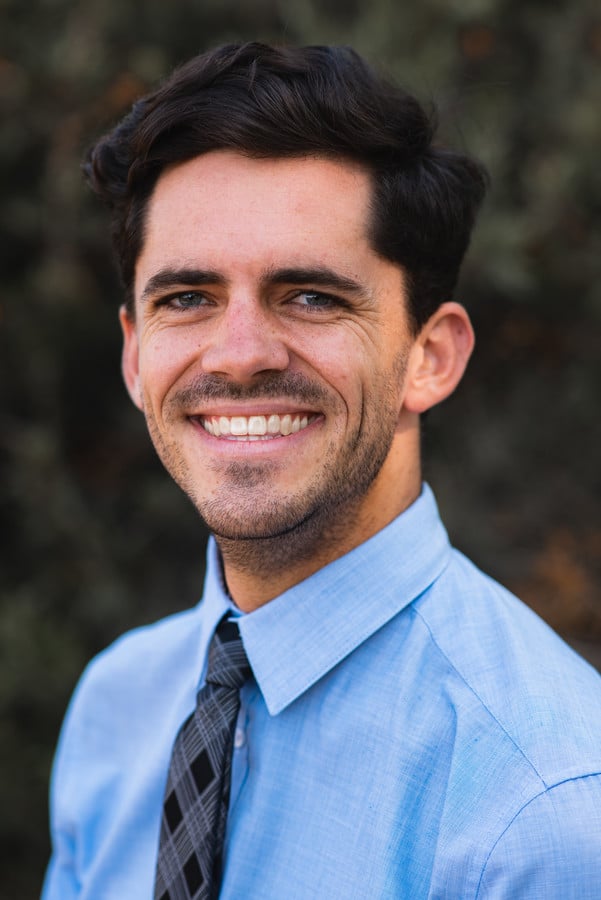As a college counselor at Collegewise, I work with high school students from 9th grade all the way to senior year, helping them navigate classes and activities, refine their academic interests, and eventually prepare their college applications. When my students start researching colleges, I encourage them to envision what they’ll have access to as a college student. What things, places, events, or people will allow them to feel encouraged and fulfilled while navigating higher education? I ask questions that get them to think about the important aspects they need outside of the classroom, but at some point, I’ll also ask if they have any academic areas or disciplines they’ve been drawn to in high school. After they’ve told me about some of their favorite classes, I usually hear this common phrase: “I love that subject, but I don’t know what I want to major in yet.” If this sounds like your teenager, it’s totally fine to respond with, “It’s okay not to know exactly what you want to study in college yet.”
Let’s take a look at a somewhat typical year-by-year schedule in high school (please don’t think your teenager is behind or ahead based on the courses I list below; this is just an EXAMPLE):
9th Grade
- English 9
- Geometry (or other math course)
- Geography
- Foreign Language (Level 1)
- Biology
- PE / Health
10th Grade
- English 10
- Algebra II
- World History
- Foreign Language (Level 2)
- Chemistry
- PE
11th Grade
- English 11 (or an AP English course)
- Precalculus
- US History
- Foreign Language (Level 3, or an elective option)
- Physics
- Art course
12th Grade
- English 12
- Calculus
- Government / Economics
- Science elective (AP course or other)
- Elective (maybe another year of foreign language)
- Elective (e.g., psychology, computer science, leadership, etc.)
There is obviously some variability in a high school course schedule based on a student’s interests, if summer courses were taken, or if their school offers other elective or student organization periods (like student government, an athletics team, or band). The point of showing you a general trajectory of high school coursework is to highlight the fact that students are oh so limited when it comes to the types of classes and disciplines offered. Looking at our sample high school course schedule, these are the academic subjects the student was exposed to:
- English
- Biology
- Chemistry
- Physics
- History
- Economics
- Politics
- Geography
- One art discipline
- One foreign language
- And whatever electives the student decided to take…
We can see that a typical high school student, over four years, has exposure to (quickly doing the easiest math ever…) just over 10 academic areas. TEN. I don’t know about your student, but considering all the studying, time, and energy they put into their academics in high school, that is NOT a lot.
Let’s take a look at Arizona State University, a pretty dang accessible college and, more importantly, a powerhouse institution right now within the world of higher education. On their dedicated majors/degrees page online, you’ll find over 400 degree types offered with specific concentrations or specializations within those majors.
Four hundred?! If your teenager is anything like me, that number probably feels OVERWHELMING. How the heck can a 17 or 18-year-old pick a major while in high school if they’ve only had access to a dozen disciplines? Enter the Undeclared or Undecided majors (and some colleges and universities are getting fancy and calling it Exploratory Studies).
Undecided applicants and admissions
One question I frequently hear from parents is, “Won’t applying undecided hurt my student’s admission chances?” While admission practices can vary from college to college, the overarching answer for most colleges and universities is “NO, applying undeclared will not negatively impact your admission chances.” There are certainly colleges that ask students to write about their intended major. Here’s an example of a prompt a student might encounter on an application: “In a short response, please discuss why you are interested in the major you’ve selected for admission to our university.” But typically, schools that ask that question also follow up with, “Or if you don't know quite yet, think about your studies so far, including extracurricular/after-school activities, jobs, volunteer work, future goals, or anything else that has shaped your interests.”
A majority of colleges and universities understand how limited a high schooler’s academic experience has been, and those schools want to help students find the academic realm they’re most interested in once they arrive on campus. As my colleague Anita names in her post, there are academic advisors at all colleges and universities who can help students choose courses and decide on a major.
They’re not wasting time
Some parents worry that entering college undeclared will slow down their student’s academic progress and potentially result in late graduation. But this is just not true! Regardless of the university or college your teen attends, all students need to complete General Education (sometimes called Common Curriculum) requirements before graduating. And while there are specific categories within General Education a student needs to complete (e.g., one humanities course, two science courses, one quantitative course, etc.), they’ll get to choose from a large variety of course offerings to satisfy those General Education requirements.
Many undeclared or undecided students lean into exploration within these course areas to refine their interests and eventually select a major. And remember, nearly all higher education institutions employ academic advisors – counselors who are trained in the curriculum requirements of the college your student attends – whose sole job is to make sure students are taking classes that fulfill either General Education requirements or major requirements for a specific degree path. Depending on the size of the college they attend, your student may be required to schedule an appointment with their academic advisor if they enter as an undeclared/undecided first-year student. The larger the university, the more proactive the student needs to be about accessing their academic advising resources on campus. But don’t fret! Your student won’t be wasting any time in their first year (or wasting any money set aside for college) by refining their interests without a specific major or degree in mind.
Exceptions to the rule
Most of the tips I’ve shared up to this point are for students who have no idea what they want to study, in which case it’s perfectly okay to lean into applying as undeclared or undecided. However, there are some degree programs that you might not be able to switch into from undeclared once you enroll in college. Many higher education institutions have a specific number of seats for certain academic majors (otherwise known as impacted, capped, limited enrollment, or direct-entry programs). These highly sought-after academic programs are familiar: engineering (including computer science), business, nursing, and various arts programs.
Some students I’ve worked with have had exposure to one or more of these competitive academic areas, and they don’t want to miss out on the opportunity to select a specific major or degree if they end up deciding that’s what they want to pursue in college. Best practice here dictates that those students should apply for a spot in any limited space program instead of choosing undeclared. If a student enters college as undecided and later attempts to switch into one of the majors noted above, they will only be able to if space allows (which usually happens only when a current student switches out of one of those programs).
The general gameplan for students who have a burgeoning interest in engineering, business, nursing, or the arts is to have them apply under that major to colleges where they’re nearly guaranteed to be admitted, and potentially apply undeclared or undecided to the schools that may be more competitive for that student. Most students admitted to direct entry programs have some type of related experience, involvement, or academic exposure that they can reference when answering the “Why do you want to study this major at our college?” essay prompt on their college application.
Wrapping up and considerations
Here’s something else that my colleague Anita discussed: the types of majors, degrees, and career options available to college students graduating now will change in 4-5 years. I always tell my students the story about how I took a “hot new class” in college called Social Media back in the good old days. At the time, it was just an idea and an exciting new course topic. Who would have thought that my old professor was absolutely right in 2010 when he said that social media would eventually become its own massive industry? Especially with the rise of artificial intelligence, today’s highly sought-after majors will likely change in four years (sorry, computer science!). The primary reason students pursue higher education in this country is to get that degree that boosts their postsecondary opportunities (whether through a first job or graduate school). However, the skills, values, connections, and experience students build throughout their four (or five) years of undergraduate study are what will prime your student for success after they graduate from college (not the piece of paper with the name of the major they chose).
As a parent or guardian, you likely feel responsible for steering your student towards a major, degree, or career path that will allow them to become independent. As a college counselor, I think it’s more important to get your student to the front steps of a college or university where they will learn how to become independent regardless of their chosen field of study. Many students need the transformative environment of higher education to feel encouraged, fulfilled, and eventually decisive in their academic interests. So if your student is unsure about what they’d like to study, it’s okay to let them lean into exploration as they head off to college. That exploration is part of the process that will help them carve out their true interests and become the independent young adult you’ve raised them to be.
About Us: With more than twenty years of experience, Collegewise counselors and tutors are at the forefront of the ever-evolving admissions landscape. Our work has always centered on you: the family. And just like we’ve always done, we look for ways for your student to be their best self - whether in the classroom, the applications, or in the right-fit college environment. Our range of counseling, test prep, academic tutoring, and essay management, all with the support of our proprietary platform, lead to 4x higher than average admissions rates.






